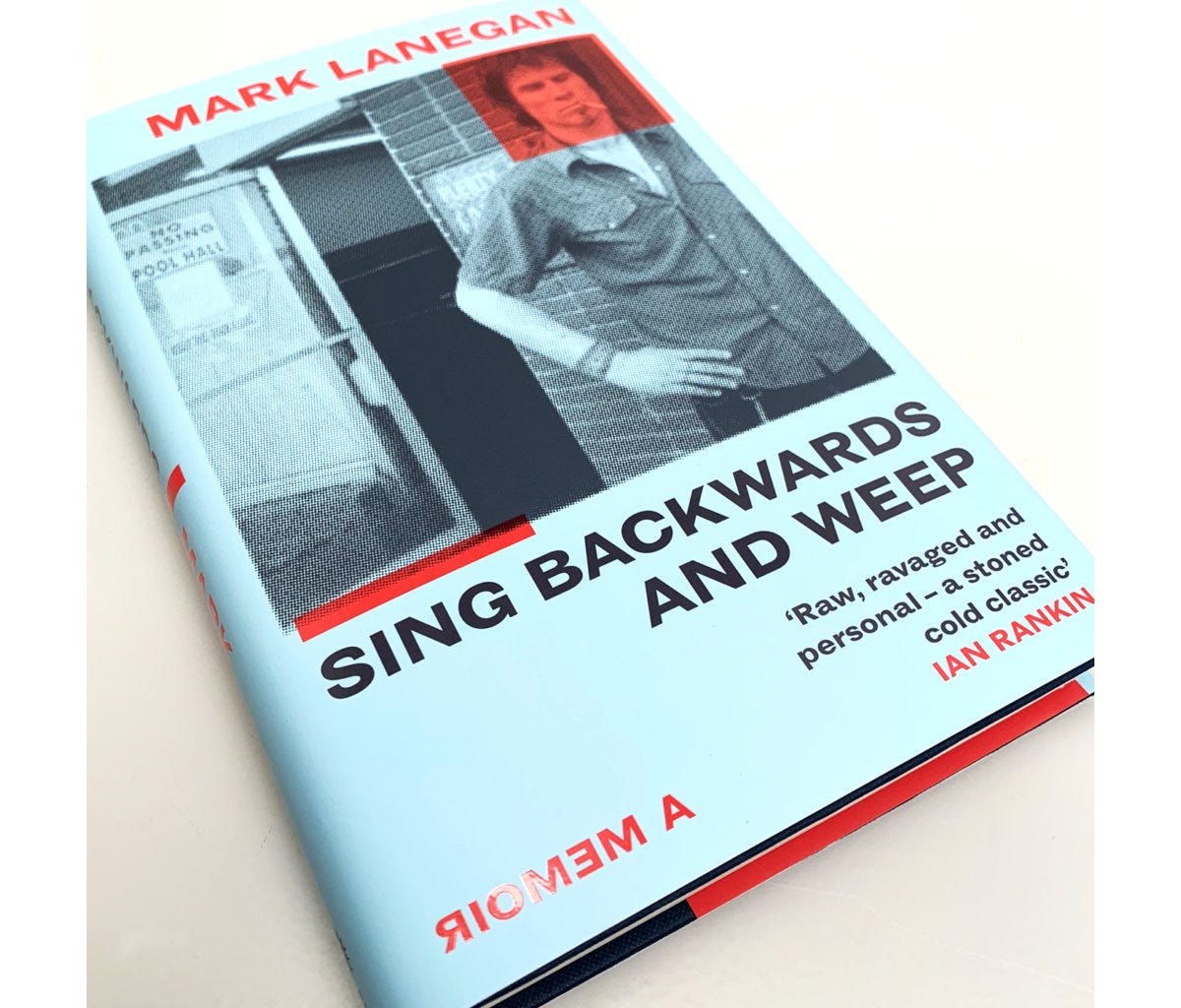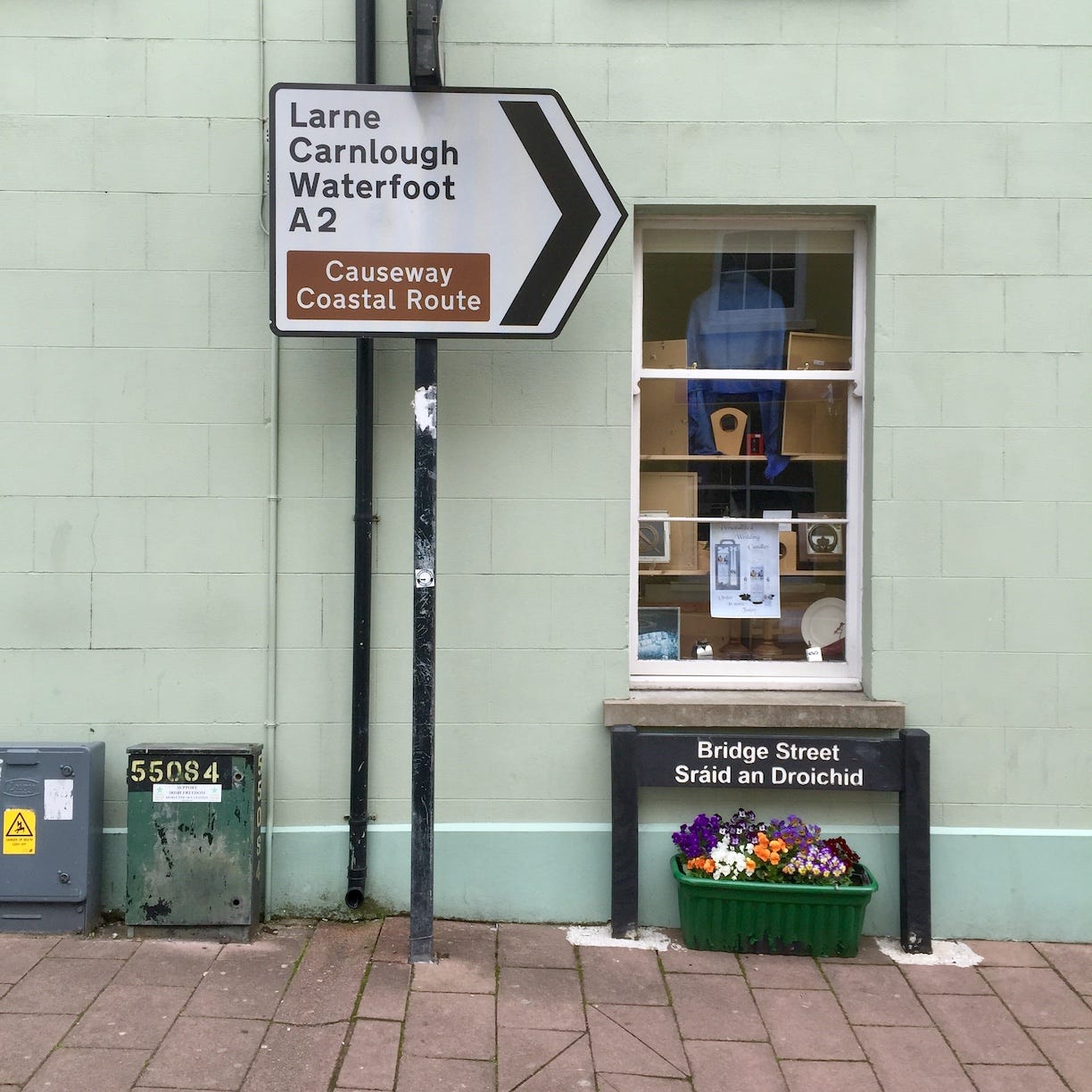First of all, thank you, Georgia. Thank you, Stacey Abrams.
Thank you for all the kind words and feedback about last week’s 2020 Year in Books (and apologies for all the typos). I really enjoyed hearing from you. The end of the year is usually dispiriting because I’m confronted with all the books I started but didn’t finish (or never got to), but putting together my list always gets me excited about the year ahead.
I decided on a new reading resolution for 2021: to read one book by an Irish author per month. I’m currently reading a book by an Irish novelist and short story writer (more on him in a bit) but the decision was prompted by learning that Kevin Barry has a new book of short stories coming out next week called That Old Country Music, which you can pre-order here.
Longtime readers of Message from the Underworld know that Barry is one of my favorite living writers (City of Bohane, Beatlebone, Night Boat to Tangier) and I suspect I’ll have more to say about him and his work in the coming weeks.
I’ve read one of the new stories in Electric Literature called “Mom’s Ex-Boyfriend Makes a Bad Fiancé.” but I’m not going to link to it because the intro has too many spoilers and there are tons of ads and not one but two of them concern the removal of earwax. Now I know the ads I see aren’t the ads you’ll see, and that confessing the nature of one’s pop-up ads is like talking about erotic dreams in public. You leave yourself open to the scrutiny of the world. So be it. I have hearing aids and the cleaning of the machinery is good cyborg hygiene. But never in my life have I pulled the likes of this image in the earwax removal ad from my ears (or any orifice for that matter). It looks more like a tooth yanked out of a mummy’s head, or a partially digested roasted cricket, or a diseased corn nut, and I don’t want to risk subjecting you to that, so just go on and wait until you can get your hands on an earwax-free copy of That Old Country Music.
In the meantime, here’s a link to a lovely audio clip of Barry reading an excerpt from a short story set in Carrick, which isn’t far from his house in Sligo, which I know because I loitered in Carrick for a bit before interviewing him for the Los Angeles Times one late summer day in 2019, and while I was there I took a photo of Josephine Costello’s moldering coffin for reasons I didn’t understand then and still don’t today.
Sing Backwards and Weep
I’ve already finished my first book of the year: a rock memoir by Mark Lanegan called Sing Backwards and Weep, and it’s jumped into my top five rock memoirs. At the moment, my favorite is The Hepatitis Bathtub and Other Stories by NOFX and Jeff Alulis aka Jeff Penalty. The Hepatitis Bathtub is gnarly, but Sing Backwards and Weep might be even gnarlier, and that’s saying something.
Mark Lanegan, in case you were wondering, was the frontman for Screaming Trees, the first band from Washington State signed to SST Records in 1986 when the label was at or near its peak. He had a very rough childhood growing up in a small town in central Washington, which he explores but doesn’t belabor. Lanegan doesn’t have much use for the rock memoir as struggle narrative, but he possesses a showman’s knack for getting his hooks in the reader.
By the time Lanegan graduated high school he was a thief, an alcoholic, a brawler, and a felon. And then he found punk. Being a punk rocker from a small town is its own fresh hell, but Lanegan was already so despised by nearly everyone in town that being a punk rocker didn’t diminish his social standing. It probably saved his life. He didn’t seek out trouble but being a punk in a place like Ellensburg amounted to the same thing. He learned how to deliver a beatdown and, more importantly, how to take one. At 6’2” and with nothing to lose he was a sure enough dangerous man.
Because Screaming Trees was one of the first indie rock bands from the Northwest to receive nationwide attention it’s often cited as an influence on many of the bands that followed, and judging from Lanegan’s many famous friends in the scene (Kurt Cobain, Layne Staley, Mike McCready) it’s not just lip service. (Personally, I prefer Lanegan’s singing on his solo records even though I like the Screaming Trees’ twist on psychedelic rock more than many of the band’s peers on the label or in the scene.)
One of the reasons why we read rock memoirs is we want to hear stories about the author’s famous friends. But writers have to tread carefully here. You can’t hide behind these stories. This isn’t an issue in Sing Backwards and Weep. Lanegan holds nothing back. If Lanegan mentions someone famous, it’s usually for one of two reasons: 1) he thinks they’re a misunderstood genius and a rock-solid individual or 2) he thinks they’re a low-down dirty son of a bitch and he’s about to tell you why.
Nine out of ten times, it’s a bad idea to run someone down in a rock memoir. Usually, the biggest fights are in courtrooms over things like publishing or the right to use the band’s name and it’s hard for the reader to feel emotionally invested in shit like that. Band beefs are also a bad idea because they’re almost always petty. Life may be short, but careers are long, so let bygones by bygones. But Mark Lanegan doesn’t give AF and he lets plenty of people have it.
Here’s a short list of people he slams in his book:
Mike Watt: Early in the Screaming Trees career, the band toured with Firehose when both bands were on SST. Lanegan calls Watt out as a cheapskate for routinely crashing in the band’s single motel room without pitching in. This is a small stakes burn but noteworthy for two reasons: 1) Watt is a beloved figure in indie rock circles and 2) Watt is practically the patron saint of DIY and has built a legacy around the idea of jamming econo. Lanegan throws some cold water on that myth.
Al Jourgensen: Time for the elephant in the room: Lanegan was a hardcore junkie. Lanegan credits heroin with relieving the catastrophic effects of being a hopeless alcoholic; but he repeatedly refers to himself as a garbage can junkie who would do any drug put in front of him. Al Jourgensen of Ministry was also a junkie and while they were touring together, the two got their signals crossed and Jourgensen ripped him a new asshole over a perceived slight. That didn’t go over well with Lanegan who sensed that the diminutive singer was wielding his celebrity like a cudgel. Lanegan let his displeasure known in a physically forceful manner.
Liam Gallagher: That the frontman of Oasis is a first-class ass is well documented so it was only natural that the two vocalists would clash. The moment they first set eyes on each other Liam declared “Howling Branches!” Clever, right? Lanegan didn’t think so. Unfortunately for Lanegan, Liam traveled with a pair of bodyguards everywhere he went, making it impossible for Lanegan to deliver the beatdown Liam so richly deserved. I won’t spoil the outcome here, but Lanegan is at his most loquacious when running down Liam’s many faults. Incredibly, the beef continued after the publication of the book with Liam calling Lanegan an “uptight junkie” who got his “little grungy knickers in a twist.” Fighting words? Lanegan recently relocated to Ireland, bringing him a short ferry ride away from Liam’s hometown of Manchester, so we will have to stay tuned…
Don’t Gamble with Love (or the Pandemic)
I’m reading a slim little book called Never Love a Gambler by Dublin author Keith Ridgway. I’d ordered a book of his called Hawthorn & Child and when it arrived I realized I already owned the aforementioned Never Love a Gambler, so I decided to start there. The book is part of New Directions Pearl Series, so it’s a slender collection of stories. Two longish short stories and one short one. So far I like it quite a bit.
There’s a scene in the title story where a mother and son walk along a Dublin road and the mother, who has a bad knee, charges forward into the intersection because the pain in her leg is so great that she’d rather take the risk that the oncoming bus will slow down and let her cross than stop at the crosswalk only to have to get the machinery going again. Naturally, her son takes issue with this decision.
“If I stop it will hurt,” she said.
“If you don’t stop it’ll fuckin’ kill you.”
This scene reminded me of a man I met at a bus stop in Cushendall that cold golden summer of 2019. I was taking the bus to Belfast and wasn’t quite sure where the stop was. It was raining, as it so often is in Northern Ireland, and I was hoping to take refuge under an awning, but I didn’t want to miss my bus. A man came out of a B&B with a suitcase and stood next to me and I surmised that I was in the right place.
We started talking and while I don’t remember where he was from he told me that he was returning home after spending a week in Cushendall. He was an older gentleman traveling alone and one of the benefits of his age, he told me, is that senior citizens can travel by bus anywhere in Northern Ireland for free. We chatted for a few minutes and then our coach arrived and off we went.
I liked chatting with him and wondered if we might do so again but in Larne we changed buses and our courses diverged. He’d told me that he doesn’t have any children, just a sister in Dublin. Each year he returns to a place where he had been happy and spends a week there. It was such a frank and open thing to say that it has stayed with me, and it works away in my mind like the prompt of a short story. What made him happy in Cushendall? Was he a young man in love? Did he find work here one summer? Did his parents take him to the fair that has been a part of Cushendall’s culture for hundreds of years?
Yesterday when I was thinking about him, I wondered if he was okay. Did he spend the pandemic with his sister? Did he stay put in the place he called home? What trip did he have planned this year? What happy memory is he yearning to remember?
I’m definitely in the yearning stage of the pandemic. Yearning to travel. Yearning to be somewhere different. Yearning to return to feeling happy and free. But these are just feelings, beautiful feelings perhaps, but feelings nonetheless. The pandemic is the bus and if we don’t get out of the way we’re all in a lot of trouble.
Ridgway was right. It hurts to stop doing the things we love. But if we don’t stop it will fuckin’ kill us.
Stay home. Stay safe. Somewhere in your abode there’s a book you’ve been meaning to read.






Looking forward to reading Sing Backwards and Weep! Thanks for the recommendation. The Hepatitis Bathtub is one of my favorites, and of course so is Do What You Want. Cheers to the new year!